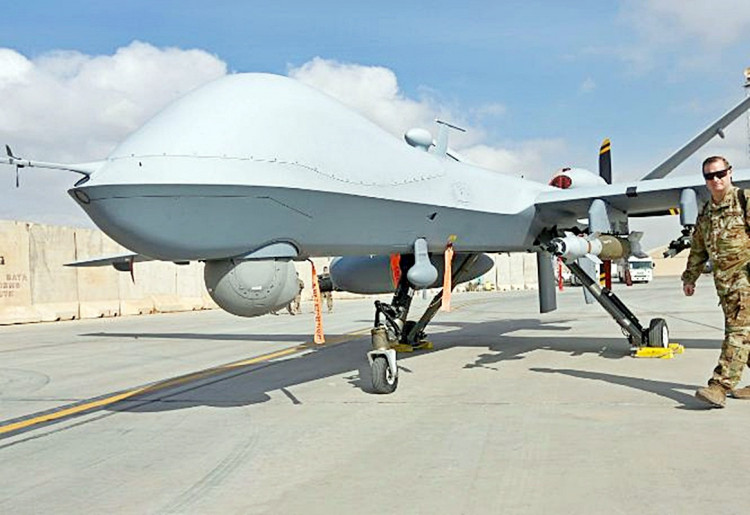The Trump administration has eased restrictions on foreign sales of U.S.-made large armed aerial drones such as the General Atomics MQ-9 Reaper (also called Predator B) in a bid to challenge China's leadership in the lucrative and growing market.
President Donald Trump on Friday signed a measure unilaterally changing the way the United States interprets the rules governing sales of unmanned combat aerial vehicles (UCAVs) under the Missile Technology Control Regime (MTCR) established in April 1987. The MTCR is not a binding treaty but is more of a political agreement among its 35 signatory states.
The U.S. Department of State announced the looser restrictions, which have long been demanded by U.S. military firms who complain that China's position as the world's top seller of armed aerial drones is due solely to the fact China isn't a signatory to MTCR.
Data from the Stockholm International Peace Research Institute (SIPRI) confirms China is world leader in UCAV sales. China sold 153 UCAVs to 13 countries from 2015 to 2019. On the other hand, the U.S. sold only five UCAVs – all to the United Kingdom –from 2009 to 2019 because of MTCR limitations.
The main buyers of China's drones are all in the Middle East: Iraq, Jordan, Saudi Arabia, Egypt and the United Arab Emirates (UAE). Among the most popular Chinese-made UCAVs is the CH-4B (Cai Hong-4B) medium-altitude, long-endurance (MALE) UCAV designed and built by China Academy of Aerospace Aerodynamics (also known as the 11th Academy) of the China Aerospace Science & Technology Corporation (CASC) consortium.
CH-4B is the largest member of the Cai Hong (Rainbow) class and looks remarkably similar to the MQ-9 Predator UCAV. The Iraqi Army is the largest operator of the CH-4B in the Middle East.
The reason for the CH-4's popularity in the Middle East and Africa is its price. Back in 2016, a CH-4 cost only $1 million compared to the price tag of $30 million for an MQ-9 Predator.
A 1992 change to the MTCR expanded the ban on arms exports to cover UCAVs. Current rules provide any UCAV capable of carrying a payload (or weapons) of 500 kilograms for more than 300 kilometers is subject to a "strong presumption of denial" for transfer to a foreign country.
The new U.S. policy unilaterally modifies this limit and also does away with this "presumption of denial." This means U.S. military firms can now sell aerial drones with speeds of 800 km/h or higher to foreign governments.
This more expansive definition will allow General Atomics to now sell its MQ-9 Reaper abroad because this UAV can fly at only 480 km/h. It will, also, allow foreign sales of the Northrop Grumman Global Hawk high altitude aerial reconnaissance drone with a speed of 600 km/h.






